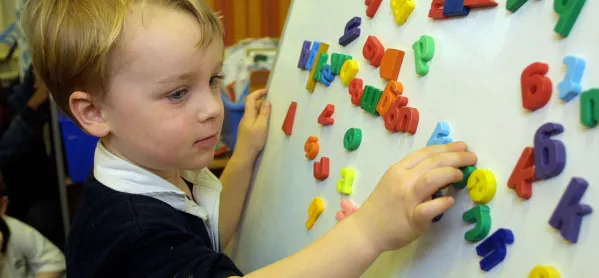The Department for Education has said it has data to show that the controversial Reception Baseline Assessment (RBA) would provide ŌĆ£a reliable point from which to measure pupilsŌĆÖ progress during primary schoolŌĆØ.
It said an showed that childrenŌĆÖs chances of reaching the expected standard in key stage 1 assessments increased with their RBA mark and╠²added that this╠²demonstrates╠²the baseline assessmentŌĆÖs validity as an ŌĆ£appropriate starting point to measure pupil progressŌĆØ.
The analysis comes after a study earlier this month by Dr Alice Bradbury, of UCL Institute of Education, titled╠²ŌĆ£Inappropriate, unnecessary, unhelpful:╠²The headteachersŌĆÖ verdict on baseline assessmentŌĆØ, which╠²said that╠²86 per cent of primary school teachers surveyed had negative or qualified views of the tests.
Need to know:╠²Reception baseline assessment
Quick link:╠²Baseline assessments dropped as accountability measures in major DfE U-turn
Research:╠²Primary heads condemn baseline tests as ŌĆśutter madnessŌĆÖ
The DfE said almost 9,500 schools would pilot the test this year.
An earlier attempt at introducing three baseline assessments╠²was made in September 2015 but the test was abandoned in April 2016 due to concerns about comparability between the different approved assessments.
Reception baseline assessment controversy
Now the DfE has compared╠²data from pupils who took part in the╠²2015 pilot with their later KS1╠²assessments. The analysis shows╠²that for every one mark increase in the RBA, the odds of reaching the expected standard in all three teacher assessments at KS1╠²increased by 10 per cent.
For the individual tests, the chance of meeting the expected standard rose by 11 per cent for reading and mathematics and 10 per cent for writing.
School standards minister Nick Gibb said: ŌĆ£The baseline assessment will be a quick check of a childŌĆÖs early language and maths skills, but,╠²more importantly, it will be a check of our school system.
ŌĆ£It will also mean the end of burdensome Key Stage 1 tests, and give teachers more valuable one-to-one time with their pupils in their first weeks of school.ŌĆØ
He said the RBA would ŌĆ£provide a strong foundation from which we can measure pupil progressŌĆØ.
╠²





